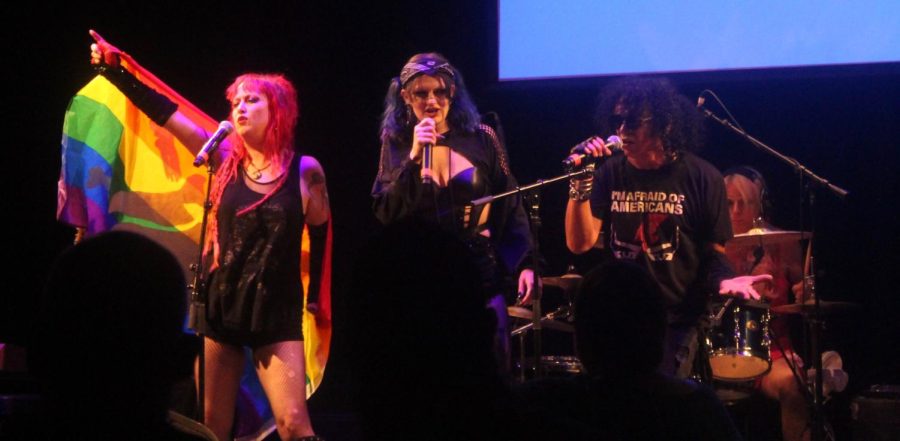On the third floor of The Hennepin Theatre Trust’s Studio 900 in downtown Minneapolis, an intimate and eager crowd awaited the start of Patrick Scully’s show on July 16.
“I want to thank everyone for coming out tonight to celebrate the 50th anniversary of Twin Cities Pride,” Scully said. “I knew of enough queer performers through my own cabarets and the Hennepin Theatre Trust to include many people from all corners of our community into our show tonight.”
Playing a key role in the Minneapolis performing arts scene as a modern dancer since the 1970s, Scully used his cabaret shows to create a platform for LGBTQ performers through decades of marginalization.
Originally majoring in biology at the University of Minnesota, Scully quickly changed his course after taking a modern dance class, thus setting the stage for his post-grad future. What later began as a show to present his own work alongside his friends in 1986,snowballed into a famous performing hub named “Patrick’s Cabaret.”
“Fifty years ago, there wasn’t a queer performing arts community. There were queer people, but it was rare that they brought their sexual identity into their performance on stage,” Scully said in a separate interview. “While I was mainly a performer, I developed a knack for sharing a show, putting together something special to offer people, especially the LGBTQ community.”
Local pianist and vocalist Lori Dokken has followed a parallel path to Scully’s since the 1980s, from playing at the long gone Gay 90s piano bar to producing shows performed at the Ordway Center for the Performing Arts. On Saturday night, Dokken performed a soul rendition of “Closer to Fine” by the Indigo Girls.
“Patrick’s Cabaret was a big thing in the ‘80s through the ‘90s and was an important place for LGBTQ performers,” Dokken said in a separate interview. “During my first Pride here in 1982, people were celebrating, but it was nothing like it is today. People had to be more secretive and didn’t want to be seen.”
By choreographing and dancing around the Twin Cities after graduating from the University in 1976, Scully is one of the artists who helped usher queer representations into the Minneapolis arts scene. Career highlights include taking part in the first showcase of Minnesota LGBTQ performers and artists in the 1980s, putting together numerous performances that highlight his experiences living as an openly gay, HIV positive man and selling out the Guthrie Theater in 2019 with his show inspired by Walt Whitman titled “Leaves of Grass.”
“Creative people first imagine something else and better, audiences are hungry for that,” Scully said in a separate interview.
Coming out in 1972, Scully didn’t have the exposure to the same queer representation in arts and media that younger generations have today, pushing him to change that.
Beyond advocating for the LQBTQ community on stage, Scully took legal action against and confronted multiple organizations, including the Twin Cities Reader, the YMCA and the Science Museum of Minnesota in the ‘80s and ‘90s for homophobic treatment and actions.
“The other day I watched the show, ‘Heartstopper’ on Netflix featuring young love between two gay teenagers. I thought about what my world would have been like if I had gotten to see a TV show like that,” Scully said in a separate interview. “I feel like the work that artists have been part of through Patrick’s Cabaret has and will continue to make space for more space for people to live their lives on their own terms.”
Closing out the July 16th show, Apocalypse Theatre went on to perform original songs, each one getting progressively louder, as Scully handed out earplugs. The performers ended the night playing a punk rendition of “Come Together” by the Beatles, jumping around stage as they shredded on their guitars and waved around a giant Pride flag.
“There’s something about the intensity of being onstage, making it up as I go along and staying true to myself as I’m doing it. For me, it’s a metaphor for life,” Scully said in a separate interview. “It’s also the joy of being able to make a difference, and helping people live as their true selves.”














